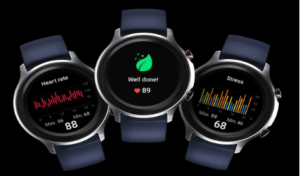Entrepreneurs frequently stall out at a junction about Android vs. iOS app development. Android flaunts a bigger client base, which might be interesting to organizations trying to expand their reach. On the contrary, iOS is very much famous for its high standards and secure features, they are a well-preferred choice for secure apps. In any case, as an entrepreneur, it’s essential to grasp the predominance of every stage so you can settle on an educated choice given the advantages that every stage offers. In this blog, we will talk about the variables to consider while choosing Android and iOS for your app development project.
Knowing about the Basics of Android and iOS App Development
There are two significant mobile app working frameworks: Android and iOS. Google’s Android is the open-source framework for telephones, so there’s a great deal of adaptability there, while Apple’s iOS is a cleaned, smoothed-out variant of a similar idea of technology. Each platform uses different programming languages. Java or Kotlin are mostly used to build Android apps while Swift or Objective C are used to make iOS apps.
Each platform has its own development tools as well. A top mobile app development company in the USA usually uses Android Studio for Android app development. Xcode is the go-to tool for iOS. These tools have several features that help developers create and test their apps quickly. They also have large libraries and frameworks that help you to develop. Using these resources can help to make the development process better and add some advanced features to the apps.
Market Share and Audience Reach
In terms of market share, Android has more users worldwide. However, iOS users are in regions such as North America and Europe where people are willing to spend on apps and in-app purchases. It can help you know where your potential users are located and decide the platform. For example, if you have any desire to contact US or Western Europe clients, iOS may be a superior decision. However, if you need to reach whatever number of users as possible, Android is the best approach. This, however, isn’t just about the technology; user spending habits also matter. iOS users are far more likely to spend money on apps than their Android counterparts.
Development Costs and Timelines
App development from a mobile app development company in USA is all about budget and time. The flexibility in design and development tools makes Android apps more cost-effective. But with so many Android devices, testing on different models and screen sizes takes more time. It can, in turn, increase the overall timeline.
Another side of iOS development has higher initial costs. However, iOS runs only on a limited set of Apple devices, and testing is, therefore, faster and easier. That means quicker turnaround times. If you’re working with a limited budget, Android may be more appealing in general. If speed is your number one concern, then it probably makes sense to choose iOS. To make the right decision for your app project, you need to balance cost and time.
Quality and Performance Considerations
Performance is key to app success and iOS is great at it because Apple controls both the hardware and software. Thanks to this integration, glitches are fewer and there will be smoother user experiences.
- Android platform has a unique problem. There are a lot of manufacturers and a lot of devices with different specifications. Sometimes this can cause performance inconsistencies. To deliver top-notch performance on Android, you need to test on a wide range of devices.
- There are tools to optimize the performance for both platforms. Regarding iOS, a top app development company in the USA tends to enjoy a more consistent environment than would otherwise be the case that provides quicker identification and resolution of problems. In testing and optimizing apps on Android, tools such as Android Studio and other emulators are available.
- And, when it comes to graphics and responsiveness, iOS has an edge usually over Android, thanks to Apple’s ironclad hardware standards. Android devices are very different, so it’s important to optimize your apps for different screen sizes and resolutions.
- Battery consumption is a key factor: iOS is favored here also because the Apple ecosystem is so efficient at managing its resources. Developing an Android app requires careful code and optimization to avoid exhausting the battery life of the mobiles.
Security and Scalability
Any app needs security and iOS often gets the nod for being more secure because of Apple’s strict app review process. It helps in keeping malicious software away. On the other hand, Android (as it’s open source) may be more vulnerable to security threats. But both platforms have great tools and guidelines to create secure apps. Considering that, for example, iOS has strong data encryption and privacy features. And security in Android, Google Play protection, and regular updates to patch vulnerabilities.
Both platforms are scalable, but iOS apps are scalable because of a controlled environment and fewer device variations. It is easier to keep performance as user numbers grow. But Android apps don’t scale as well as web apps do- as you would expect, on mobile apps that need to work on a wide range of devices and screen sizes. This must be thoroughly tested to achieve consistent performance.
Cloud services for managing scalability are available on both platforms. There are tools for data storage, user authentication, etc. from Apple’s iCloud and Google’s Firebase. These services help you deal with growing user bases and complex app functionalities. Ultimately, think about the requirements your app has and the issues that each platform can bring up. Securing and scaling an app is possible on Android as well as iOS if done right.
Related blog: How Much Does It Cost To Hire An Android App Developer?
Monetization Strategies
There are many ways to make money from your app. The most common ways to monetize are through paid downloads, in-app purchases, and advertising, and iOS users spend more money on apps and their in-app purchases. If you’re going to charge for your app or provide premium features, iOS is a strong candidate.
However, Android’s large user base can be a boon for ad-based monetization. The more users you have, the higher your chance of earning revenue through ads. Both platforms work well with Freemium models, the app being free while the users can purchase extra features.
Another option is to create subscription models. They make their money by charging users repeatedly. Subscription-based apps are supported by both iOS and Android and this model is catching on. Think about which strategy fits your app’s purpose and your target audience. You may even decide to combine several strategies to increase your revenue.
Conclusion:
The question of whether to develop an Android or iOS app boils down to what you need and what you want to achieve. If your goal is to reach a wide global audience, Android may be the way to go with greater market share. But if you’re looking to hit mainly users from regions such as North America and Europe, iOS might seem to be more efficient.
Ultimately, both platforms have pros and cons. You can choose a top app development company in USA to help you find the right platform. Pick the one that fits your business objectives and your target audience. Planning is used carefully and the right partner can take your app anywhere you want it.





More Stories
What Features Should I Look for in a Noise Smart Watch?
C# and the NET Framework: What’s the difference
Boost Your Employability: Unleash the Benefits of Soft Skill Training